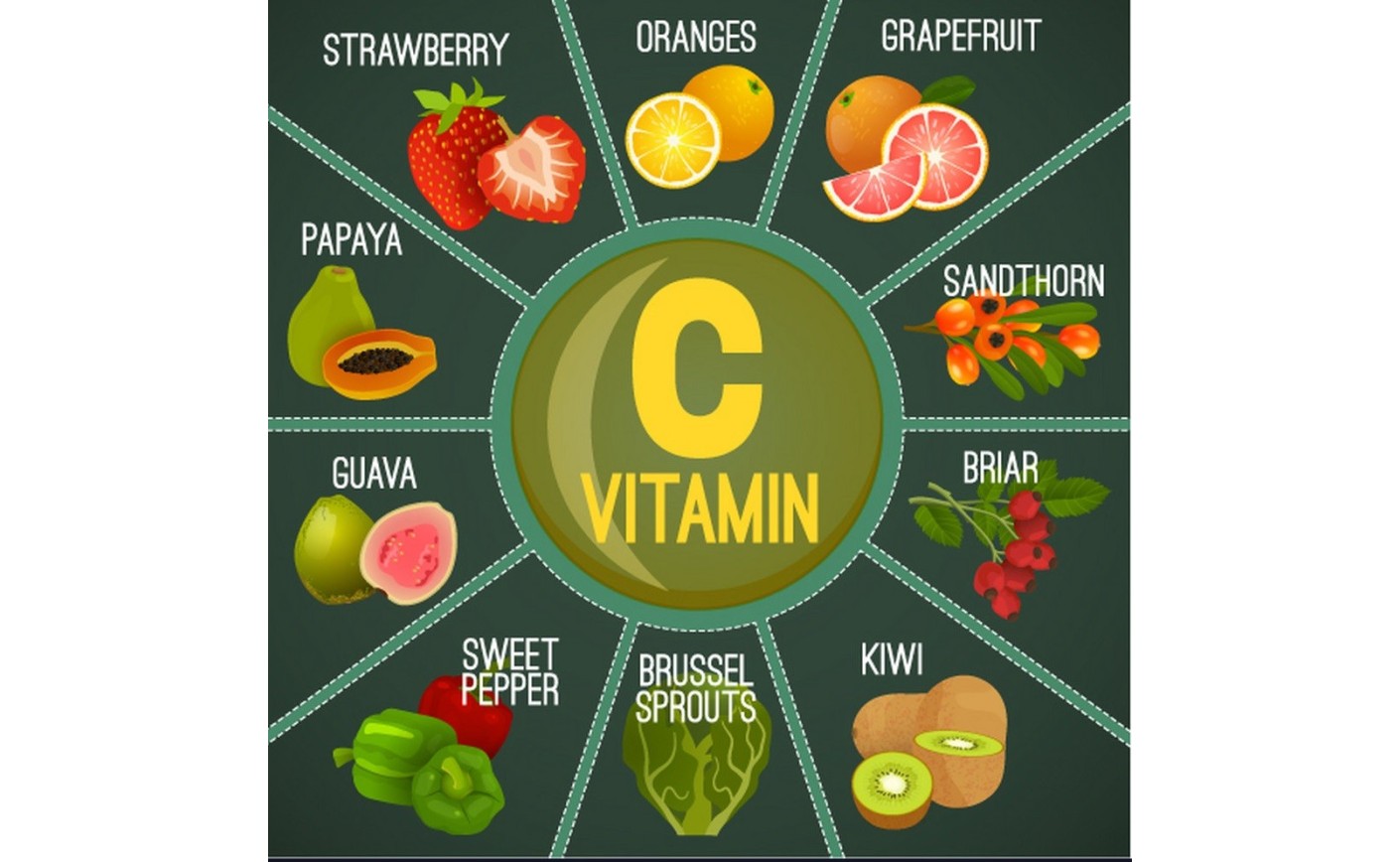
Vitamin C, also known as ascorbic acid, is a water-soluble vitamin and a powerful antioxidant. It plays a crucial role in many physiological processes, including the synthesis of collagen, wound healing, and the maintenance of a healthy immune system. Since the human body cannot produce vitamin C, it must be obtained through the diet or supplementation. This comprehensive guide will discuss the importance of vitamin C, its health benefits, dietary sources, recommended daily intake, and potential side effects.
1. Importance of Vitamin C
Vitamin C is an essential nutrient that performs numerous functions in the body, such as:
- Collagen synthesis: Vitamin C is a crucial component in the synthesis of collagen, a structural protein found in skin, bones, tendons, and other connective tissues. Collagen is necessary for maintaining skin elasticity, wound healing, and overall structural integrity of the body.
- Antioxidant activity: Vitamin C is a potent antioxidant that helps protect cells from oxidative damage caused by free radicals. This protection helps maintain the health of various body systems, including the immune, cardiovascular, and nervous systems.
- Immune system support: Vitamin C plays a vital role in supporting a healthy immune system by enhancing the function of white blood cells and promoting the production of antibodies. It also helps reduce inflammation and supports the body's natural defense against infections and diseases.
- Iron absorption: Vitamin C helps improve the absorption of non-heme iron, a form of iron found in plant-based foods. This increased absorption is particularly important for vegetarians and vegans, who may struggle to meet their iron requirements from plant sources alone.
2. Health Benefits of Vitamin C
Vitamin C offers numerous health benefits, including:
- Improved skin health: Adequate vitamin C intake supports collagen synthesis, which is crucial for maintaining skin elasticity and reducing the visible signs of aging.
- Faster wound healing: Vitamin C is essential for the formation of new connective tissue, which promotes faster wound healing and reduces the risk of infection.
- Enhanced immune function: Regular vitamin C consumption can help strengthen the immune system, reducing the risk and severity of infections such as the common cold and flu.
- Cardiovascular health: Vitamin C's antioxidant properties help protect blood vessels from damage, reducing the risk of heart disease and stroke.
- Prevention of chronic diseases: Vitamin C's antioxidant activity may help lower the risk of chronic diseases, such as cancer, by neutralizing harmful free radicals and reducing oxidative stress in the body.
3. Dietary Sources of Vitamin C
Vitamin C is found naturally in a variety of fruits and vegetables, with the most abundant sources being:
- Citrus fruits: Oranges, grapefruits, lemons, and limes are rich sources of vitamin C.
- Berries: Strawberries, raspberries, and blueberries contain significant amounts of vitamin C.
- Tropical fruits: Kiwifruit, mango, and papaya are excellent sources of vitamin C.
- Melons: Watermelon and cantaloupe provide substantial amounts of vitamin C.
- Vegetables: Bell peppers, broccoli, Brussels sprouts, and spinach are good sources of vitamin C.
To maximize vitamin C intake, consume a wide variety of colorful fruits and vegetables daily, as they are the best natural sources of this essential nutrient.
4. Recommended Daily Intake and Supplementation
The Recommended Dietary Allowance (RDA) for vitamin C varies depending on age, gender, and life stage:
- Adult men: 90 mg/day
- Adult women: 75 mg/day
- Pregnant women: 85 mg/day
- Breastfeeding women: 120 mg/day
- Smokers: An additional 35 mg/day, as smoking increases oxidative stress and depletes vitamin C levels in the body.
It is essential to consult with a healthcare professional before starting a vitamin C supplementation regimen, as individual needs may vary, and excessive intake can cause adverse effects.
Vitamin C supplements are available in various forms, including tablets, capsules, chewables, and powders. When selecting a supplement, it is crucial to choose a high-quality product from a reputable manufacturer to ensure purity, potency, and proper labeling.
5. Safety and Potential Side Effects
Vitamin C is generally considered safe for most individuals when consumed within the recommended dosages. However, excessive intake of vitamin C may lead to adverse effects, such as diarrhea, nausea, abdominal cramping, and bloating. These symptoms are usually mild and resolve once the dosage is reduced or supplementation is discontinued.
In some cases, excessive vitamin C intake can cause more severe symptoms, such as kidney stones, especially in individuals with a history of kidney disorders. It is crucial to follow the recommended dosage guidelines and consult with a healthcare professional if any concerns arise.
Certain medical conditions and medications may interact with vitamin C supplementation, including kidney disease, hemochromatosis, and medications like anticoagulants or chemotherapy drugs. Individuals with pre-existing medical conditions or taking medications should consult their healthcare provider before starting vitamin C supplementation.
6. Vitamin C is an essential nutrient that plays a crucial role in numerous physiological processes, such as collagen synthesis, immune system support, and antioxidant activity. By incorporating vitamin C-rich foods into the diet and considering supplementation when necessary, individuals can ensure they meet their daily vitamin C requirements and reap the numerous health benefits this essential nutrient offers.
It is essential to consult with a healthcare professional before starting a vitamin C supplementation regimen, as individual needs may vary, and excessive intake can cause adverse effects. By following the recommended dosages and selecting high-quality supplements, individuals can safely and effectively improve their vitamin C status and support optimal health.





Leave a Reply Cancel Reply